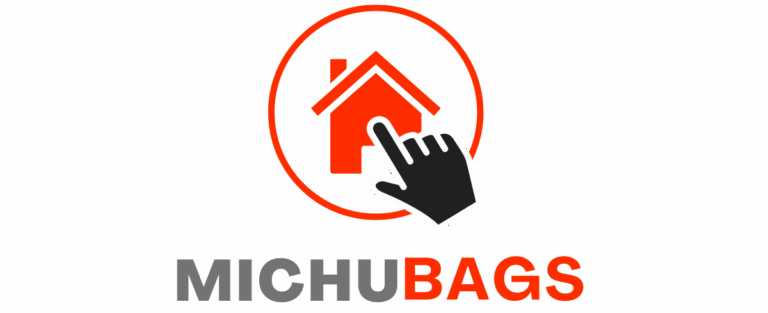In a world where virtual playgrounds reign supreme, Roblox stands out as a titan of creativity and fun. But when did this gaming phenomenon first burst onto the scene? Picture this: it’s 2006, and while most kids are still figuring out how to ride a bike, a platform is born that’ll let them build their own worlds, create games, and unleash their wildest imaginations.
Table of Contents
ToggleOverview of Roblox
Roblox stands as a prominent virtual gaming platform, encouraging users to explore creativity and entertainment since its launch in 2006. The platform offers a space for players to connect, create, and share their gaming experiences.
What Is Roblox?
Roblox is an online platform where users can create and play games developed by others. Players can create unique avatars and participate in diverse experiences, ranging from obstacle courses to role-playing games. Developers utilize the platform’s built-in tools to construct games, ensuring a wide variety of gameplay options. Users can access Roblox from various devices, including PCs, smartphones, and consoles, making it highly accessible.
Purpose and Concept of the Game
Roblox serves as a creative outlet and social environment. The purpose lies in allowing users to design games and share them with others, facilitating teamwork and collaboration. Players engage in these user-generated experiences, fostering a sense of community and fun. Educational concepts, such as programming and game design, often come into play, providing valuable skills. Roblox demonstrates that gaming transcends mere entertainment, acting as a valuable tool for learning and creativity.
History of Roblox
Roblox’s history reflects its evolution as a prominent virtual gaming platform. Since its inception, the platform has generated significant interest among young gamers.
Early Beginnings
Roblox originated in 2004 when David Baszucki and Erik Cassel founded the company under the name DynaBlocks. Initially, it aimed to provide a space for users to create 3D experiences. The platform evolved towards user-generated content, emphasizing creativity. In 2005, they rebranded it to Roblox, a combination of the words “robots” and “blocks.” This rebranding marked a pivotal shift in vision, clearly focusing on user creativity within a virtual world.
Official Launch Date
The official launch of Roblox occurred on September 1, 2006. This was a crucial moment for the platform, as it made user-generated games accessible to the public. Gamers of all ages could start creating and sharing their virtual experiences. Initially, the platform featured only basic building options, but it quickly attracted a dedicated user base. As interest grew, Roblox introduced features that allowed for enhanced gameplay and customization.
Major Milestones
Over the years, Roblox reached several major milestones that significantly impacted its growth. In 2013, it launched Roblox Mobile, enabling users to access games on smartphones and tablets. The addition of virtual currency, Robux, in 2012 further enhanced user engagement. By 2015, Roblox introduced the Developer Exchange program, allowing developers to monetize their creations. In 2020, the pandemic led to a surge in user registrations, bringing the player count to over 150 million monthly users. Each milestone contributed to Roblox’s positioning as a leader in the gaming industry.
Evolution of Roblox
Roblox has transformed significantly since its launch in 2006, becoming a cornerstone of virtual gaming. Its evolution encompasses numerous updates, expansions, and community developments that enhance user engagement.
Updates and Expansions
Roblox consistently integrates new features and capabilities. The introduction of Roblox Mobile in 2013 broadened accessibility, allowing users to engage on various devices. In 2012, the launch of the virtual currency Robux added a layer of economic interaction, enabling players to purchase items and enhance gameplay. Regular updates keep the platform fresh and exciting, with new game mechanics and tools introduced frequently. The Developer Exchange program, launched in 2015, incentivized content creators by allowing them to monetize their games, fostering a thriving developer community.
Community Growth and Development
Community involvement has played a crucial role in Roblox’s expansion. As of 2020, the user base swelled to over 150 million monthly players due to the pandemic, reflecting a surge in interest. Players can connect through events, forums, and social interactions, thereby enhancing their experience. Developers actively contribute to this vibrant ecosystem, creating diverse games that cater to various interests. Additionally, collaborative events encourage teamwork and creativity, further enriching the community dynamic. The continuous influx of new users drives the need for innovative content, sustaining Roblox’s growth as a premier gaming platform.
Impact on Gaming Culture
Roblox’s introduction revolutionized gaming culture by emphasizing user-generated content. This platform encourages creativity by allowing players to build and share their own games. Game development has become more accessible due to Roblox’s extensive tools and resources. Developers no longer require specialized programming knowledge to create engaging experiences. Instead, they can experiment with various styles and genres, fostering innovation in the gaming industry. The Developer Exchange program has also incentivized creators to monetize their work, promoting a new generation of game developers.
Popularity among different age groups highlights Roblox’s broad appeal. Children and teens form a significant user base, drawn to the platform’s vibrant community and diverse gameplay. Adults participate, too, often engaging with their children or exploring user-generated content themselves. Data shows Roblox reaches over 150 million monthly users, including diverse demographics. Parental engagement contributes to the platform’s popularity, as it offers family-friendly entertainment. The platform’s adaptability attracts users across all ages, making it a unique fixture in the gaming landscape.
Roblox has transformed the gaming landscape since its launch in 2006. By offering a platform where creativity and collaboration thrive it continues to attract millions of users worldwide. The evolution of Roblox reflects its commitment to enhancing user experience through regular updates and innovative features. As it grows the platform remains a vital space for both gamers and aspiring developers. Roblox’s unique approach to user-generated content has not only redefined gaming culture but also empowered a new generation of creators. With its focus on accessibility and community engagement Roblox is set to remain a leading force in the gaming industry for years to come.







